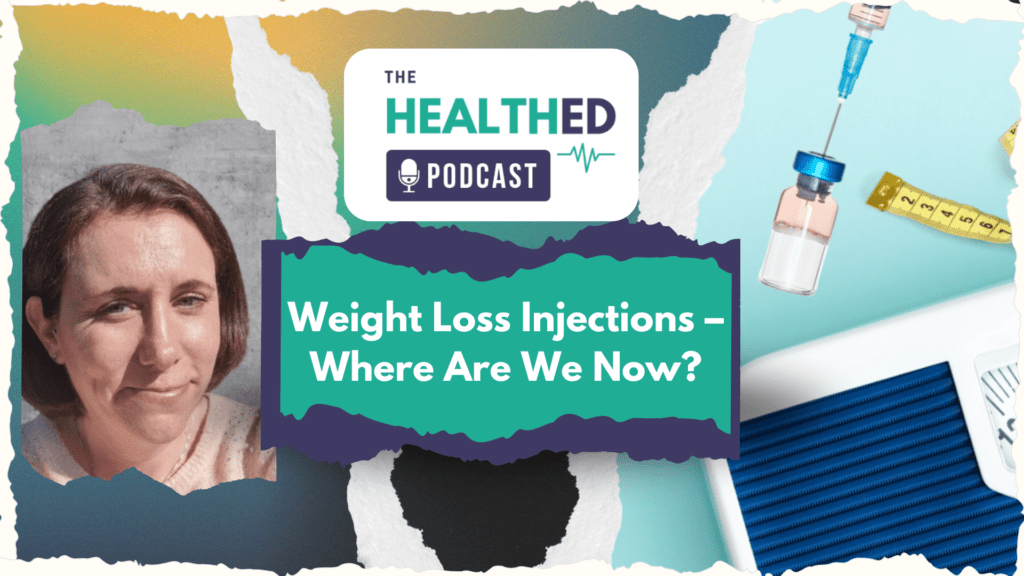
It’s hard to ignore the growing interest in weight loss injections. Over the past year, they’ve moved from specialist clinics into everyday conversations at the pharmacy counter, GP surgery, and in private practices. Patients hear about them on morning television, see them discussed across social media platforms, and read about high-profile figures using them. For many members of the public, their first questions are directed at the most accessible professionals they know, whether that’s a pharmacist, a practice nurse, or their GP, or increasingly, directly to private clinics offering these solutions.
A significant shift is underway in how patients may access these treatments through the NHS. Until recently, most weight loss injections were initiated only in NHS specialist weight management services. However, there are emerging pathways for primary care involvement, with some GP practices in England gaining the ability to prescribe certain medications as part of a phased national rollout for those at the highest clinical risk. This marks a pivotal, evolving moment, bringing new complexities and opportunities to primary care practice.
Weight-loss injections have become widely recognised in recent years as effective options for people living with excess weight. These medicines belong to a group known as GLP-1 receptor agonists. They work in several ways: by stimulating insulin release to lower blood sugar (their original use in type 2 diabetes), slowing down digestion, and acting on the brain to reduce appetite. The combined effect is that people feel fuller for longer, tend to eat less, and can potentially achieve significant weight loss.
There has always been public interest in weight management solutions, but the enthusiasm for these newer injectable treatments feels different. Unlike older diet pills, which often lacked strong evidence, GLP-1 agonists have been shown in clinical trials to be safe and effective when prescribed appropriately. This makes it harder for healthcare professionals to dismiss or deflect queries without providing a thoughtful, evidence-based response.
When a patient asks whether a weight loss injection could work for them, they are often asking from a place of hope and vulnerability. Many have tried multiple approaches before. Some may have struggled with their weight for years, facing stigma and frustration along the way. These conversations are rarely straightforward.

The NHS prescribing landscape for weight loss injections is evolving rapidly. At the time of writing (October 2025) the primary GLP-1 injections approved for weight management on the NHS are Wegovy (semaglutide), Mounjaro (tirzepatide), and Saxenda (liraglutide).
Across all these medicines, NHS prescribing must take place within a structured programme that includes lifestyle, diet, and physical activity support. These treatments are not suitable for everyone and are contraindicated in some groups, such as during pregnancy or for people with certain medical conditions. Some may also affect the absorption of certain medications, such as oral contraceptives and HRT, requiring careful counselling.
Alongside this, a growing number of private clinics and online providers offer weight loss injections, often combined with diet and lifestyle support. Private providers may have different eligibility criteria compared with NHS services, meaning some patients who do not meet NHS thresholds could still be offered treatment privately. It’s important to note that responsible private prescribers operate under stringent clinical guidelines and a duty of care, ensuring appropriate and safe patient selection, similar to NHS practices. To enhance patient safety, particularly in online care, GPhC guidance for this class of high-risk injectable medicines now strictly requires prescribers to independently verify clinical information rather than relying solely on online questionnaires.
While the private route can improve access for some, patients need to be aware of the costs, the importance of safe prescribing, and the need for proper follow-up.
For primary care teams, this means many conversations with patients involve not only explaining clinical criteria and risks, but also clarifying the difference between NHS and private routes, and sometimes managing disappointment when the media coverage doesn’t reflect the reality of access.

For those of us working in community pharmacy, general practice, or private clinics, the arrival of weight loss injections has raised some important reflections:

It’s important to distinguish between GLP-1 medicines licensed for weight loss and those licensed only for type 2 diabetes. At the time of writing, Wegovy and Mounjaro are licensed for obesity management, while others in the class, such as Ozempic and Rybelsus, remain licensed for diabetes only. While some practices may, in limited circumstances, consider off-label prescribing, it is vital for healthcare professionals to adhere to UK prescribing guidelines; off-label prescribing of diabetes-only GLP-1s for weight loss is generally discouraged or restricted to protect the supply for patients with type 2 diabetes.
While most side effects of weight loss injections are mild and gastrointestinal, some uncommon but serious risks have been reported. The MHRA has issued additional safety guidance, and patients should be advised to seek support promptly if they experience any abnormal side effects, in particular in relation to severe abdominal pain or mood changes. Clear safety counselling remains essential.
A growing concern also surrounds counterfeit and fake products. Genuine GLP-1 medicines for weight loss are supplied as pre-filled injection pens. Products offered as powders or in vials online or through unregulated sources are not authorised and pose serious health risks. Patients must be encouraged to obtain medicines only via regulated pharmacies with a legitimate prescription, checking registration using the GPhC or PSNI registers. Campaigns like MHRA’s #FakeMeds provide resources to help the public avoid unsafe sources.
One of the trickiest aspects of this discussion lies in balancing professional responsibility with intense patient demand. Healthcare professionals are trusted to provide medicines safely and appropriately. However, with treatments like weight loss injections, there’s an added pressure, sometimes fuelled by social media trends or celebrity endorsements.
It can be difficult to say “no” when a patient expresses hope that a treatment will change their life. Yet, clinical judgement must always come first. Professionals need confidence in current guidance to clearly explain why a treatment may or may not be appropriate.
Equally important is the tone of these conversations. Rejecting a request without empathy risks shutting down dialogue and leaving the patient feeling dismissed. Acknowledging their interest, explaining the evidence, and signposting to safe alternatives helps maintain an open and constructive discussion.

Looking ahead, it seems inevitable that pharmacy, general practice and private clinics (alongside specialised services) will all play an increasingly significant role in weight management services. Pharmacists are accessible and trusted, GPs and nurses are already central to chronic disease management, and private providers are seeing a surge in demand.
Weight loss injections are only one part of this landscape, but they highlight how the public increasingly sees all parts of primary care as resources for long-term health improvement, not just for acute issues or dispensing.
At present, while specialist services remain key for initiation, patients frequently approach their GP or pharmacy first with questions. This positions primary care and community pharmacy as crucial hubs for advising, triaging, and supporting patients with clear, evidence-based information.
In the future, responsibilities are likely to expand further, from referral and triage to potential shared-care models or monitoring for patients initiated in specialist or private settings. Critically, primary care professionals can help frame injections as one tool within a broader package of lifestyle, nutrition, and mental health support.
Preparation could mean:
It’s essential to remember that weight management is never simple. For many patients, it’s deeply personal, tied to identity, confidence, and mental health. Medicines can play a transformative role, but they are not magic solutions.
Our role isn’t just about providing or denying access to injections. It’s about guiding patients through the inherent complexity, recognising where medication can genuinely help, where lifestyle changes are more appropriate, and where further support is needed. Part of that complexity is acknowledging that these medicines may also support broader health outcomes, not just weight loss as some research has suggested.

So, where are we now? We are in a dynamic middle ground. The demand is real, effective treatments are here, and healthcare professionals in primary care are deeply involved in the conversation. The pivotal shift since June 2025 is that, for the first time, some patients can now access weight loss injections through their GP practice, though this remains tightly restricted to those at highest clinical risk. The frameworks and long-term role of primary care in this area are still very much evolving, but the expectation is clear: pharmacy, GPs, and nurses will play an increasingly central role in the years ahead.
It’s crucial to remember that these injections are often a long-term therapy rather than a short-term ‘quick fix’ that can be stopped once a target weight is reached. Therefore, integrated lifestyle support, diet, and exercise remain essential alongside medication.
What seems certain is that this is not a passing trend. Weight management will remain a major public health issue, and professionals across primary care will continue to be asked for advice. Being prepared, clinically, professionally, and emotionally, is essential.

At Health Academy, we know how important it is for professionals across pharmacy, general practice, and private settings to have safe spaces to explore these issues together. That’s why we’re running our Lunchtime Session: Weight Loss Injections – Where Are We Now?
In this session, we’ll discuss some of the points raised here in more depth:
💡 About our trainer: Laura Kennedy has been at the forefront of developing pharmacy services in weight management. She created the first comprehensive training programme for pharmacists in this area and has written a series of weight management PGD’s (Patient Group Directions) now used across the sector.
It’s not about providing easy answers, but about sharing reflections and insights you can take back into your own practice. If these issues are coming up more often in your consultations, whether in a pharmacy, a GP surgery, or a private clinic, why not join us over lunch on Thursday 23rd October 2025.
Click below to sign up to be part of the discussion and submit your question in advance.

Giving you written and video content to answer all your questions on primary care education from Phlebotomy to Travel Health.
Subscribe now to be kept updated with our latest posts and insights.
Start typing to search courses, articles, videos, and more.